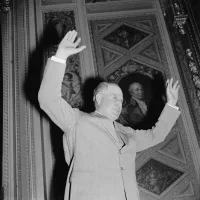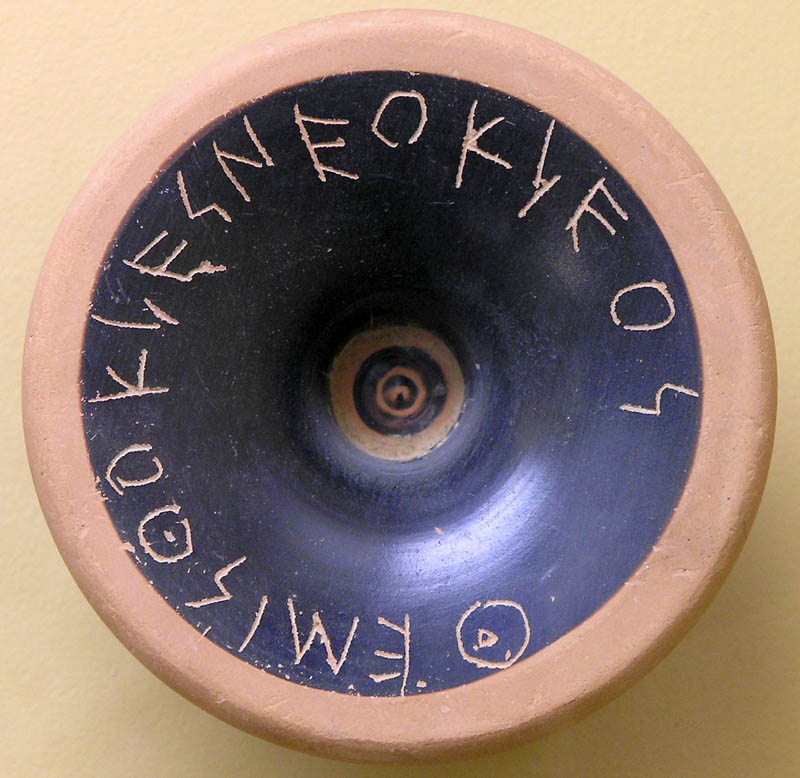A quorum represents the minimum number of members required for a group to conduct business at a meeting. Its presence ensures the validity of decisions made by the assembly. Conversely, a plenum signifies a gathering of the entire body. When a quorum is present, the body, meeting, or vote is considered 'quorate,' allowing the group to proceed with its agenda and make legally binding decisions.
November 1942: Filibuster over Civil Rights Legislation
In November 1942, Democratic Majority Leader Alben W. Barkley obtained an order to detain five Southern absentees to obtain a quorum during a filibuster over civil rights legislation. Deputy Sergeant at Arms J. Mark Trice was sent to the apartment of Democratic Senator Kenneth McKellar of Tennessee to convince him to attend the senate session.
February 1988: Last Quorum Call
In the United States Senate, the procedure was last used in the early morning hours of February 1988.
1988: Last Quorum Call
Prior to 1988, the last time the procedure had been used was during a 1942 filibuster over civil rights legislation.
1989: House of Representatives (Quorum) Act 1989
In 1989, the House of Representatives (Quorum) Act 1989 amended the quorum in the House of Representatives down to one-fifth.
1989: Tiananmen massacre motion debate
Quorum-busting is a common feature during the annual motion debate related to the 1989 Tiananmen massacre.
1991: Senate (Quorum) Act 1991
In 1991, the Senate (Quorum) Act 1991 amended the quorum in the Senate down to one-quarter.
1996: Quorum requirement abolished in New Zealand Parliament
In 1996, the New Zealand Parliament abolished its previous requirement for a quorum, which had been 15 members in a House of 99 members.
1997: Quorum of LegCo set to 30
In 1997, between 1997 and 2012 the quorum was 30, for the meetings of the Legislative Council of Hong Kong (LegCo). Prior to 1997 transfer of sovereignty over Hong Kong, the quorum was set at 20.
1997: First Quorum Busting Since 1997
Quorum-busting was used at least twice since 1997.
2001: Democratic Walkout
In 2001, Democratic members of the House of Representatives staged a five-day walkout over redistricting.
2005: Quorum-busting incident
In 2005, some pro-democracy members paid a silent tribute to Zhao Ziyang, leading to the suspension of the meeting. Pro-Beijing members refused to return, forcing adjournment.
2007: Constitutional referendum in Turkish Parliament
In 2007, after opposition parties deadlocked the presidential election, the ruling AK party proposed a referendum to lower the quorum. Nearly seventy percent of participants supported the constitutional changes.
January 2010: Pro-Beijing members protest resignation speeches
On January 2010, pro-Beijing members left the chamber during resignation speeches by pro-democracy members. One member called for a quorum count, leading to adjournment.
2011: Oireachtas Quorum
According to the most recent standing orders, published in 2011, the quorum for the Oireachtas, the Irish parliament, for both the lower House, Dáil Éireann, and the upper House, Seanad Éireann, is 20 members.
May 2012: Quorum calls during LegCo debate
On May 2012, during a LegCo debate on barring resigning legislators from by-elections, 23 quorum calls were issued, taking up to 3 hours. The LegCo was later adjourned due to lack of quorum amid a boycott.
2012: Quorum of LegCo set to 35
In 2012, the quorum for the meetings of the Legislative Council of Hong Kong (LegCo) was set to 35.
June 2015: Pro-Beijing members leave chamber during LegCo vote
On June 2015, pro-Beijing members left the LegCo chamber during a vote on amending election provisions, aiming to ensure a sick member could return. However, the resolution was still voted on and resulted in a landslide defeat.
May 2019: Republican State Senators Walkout
Beginning in May 2019, Republican state senators in Oregon made a series of walkouts in opposition to an emissions trading bill.
June 2019: Governor authorizes State Police to bring back senators
On June 2019, Gov. Kate Brown authorized the Oregon State Police to bring back the senators, who had left the Oregon State Capitol to bust the needed quorum.
July 2021: Texas Democrats flee to Washington D.C.
On July 2021, Democratic members fled the state to Washington D.C. to block the passage of a bill and lobby federal lawmakers.
2021: House adopted rule changes
After the 2021 quorum breaks, the House adopted rule changes in order to place fines on members who break quorum.
2022: Oregon voters approve Measure 113
In 2022, Oregon voters approved Measure 113 which disqualified members who were absent unexcused for more than 10 legislative days from running for reelection.
2023: Another walkout by the Republican state senators
During the 2023 legislative session, there was another walkout by the Republican state senators which led to the disqualification of 10 members.
August 27, 2024: Lack of Quorum
On August 27, 2024, independent member Vehari Aurangzeb Khichi raised a point of order to a lack of quorum within the chamber. The assembly was adjourned, delaying bills affecting the judiciary.
2024: The disqualification upheld by State Supreme Court
In 2024, the disqualification was later upheld by the State Supreme Court.
Mentioned in this timeline
The United States of America is a federal republic located...
New Zealand is an island country located in the southwestern...
Hong Kong is a Special Administrative Region of the People's...

A filibuster is a political tactic employed in legislative bodies...
Illinois is a Midwestern U S state bordering Lake Michigan...
Oklahoma is a state in the South Central region of...
Trending

9 months ago Alan Cumming and Stephen Colbert team up for 'Billionaires Are Actually Good' song.
Bill Cowher is a former American football player and coach He served as the head coach of the Pittsburgh Steelers...

9 months ago Ben Affleck Hilariously Teases Matt Damon's Shirtless 'Odyssey' Photo and Physique.

Paul Franklin Dano is a celebrated American actor known for his versatile roles His early career saw him winning the...
3 months ago Deadly Paraglider Attack in Myanmar Kills Dozens at Buddhist Festival Celebration

8 months ago Mirra Andreeva vs. Yulia Putintseva at French Open; Putintseva Advances to Second Round
Popular

Carson Beck is an American college football quarterback currently playing...
Curt Cignetti is an American college football coach currently the...

XXXTentacion born Jahseh Dwayne Ricardo Onfroy was a controversial yet...
WWE Raw a professional wrestling television program by WWE airs...

Stranger Things created by the Duffer Brothers is a popular...

Kristi Noem is an American politician who has served as...
